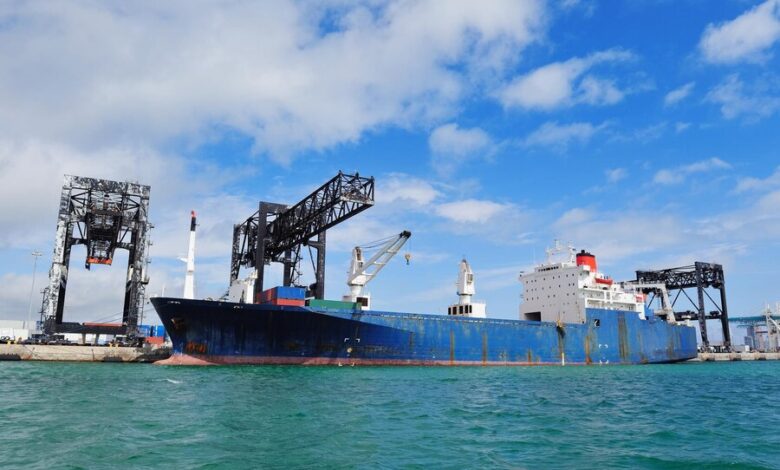The Advantages of Sea Freight Logistics for Businesses

Logistics is a critical component of the supply chain management process, and businesses of all sizes rely on efficient and cost-effective transportation methods to move their goods around the world.
While there are various modes of transportation available, sea freight has emerged as a popular choice for many businesses due to its numerous advantages.
In this article, we will explore the benefits of sea freight logistics for businesses, including cost savings, flexibility, reliability, and environmental sustainability.
Cost Savings
One of the primary advantages of sea freight logistics is its cost-saving potential. Compared to other modes of transportation, such as air freight or road transportation, sea freight offers significantly lower transportation costs.
The economies of scale associated with shipping large volumes of goods across long distances allow businesses to benefit from lower per-unit shipping costs.
This is particularly advantageous for businesses that deal with bulky or heavy goods, as air transportation costs can quickly escalate for such items.
Flexibility
Sea freight logistics also offer businesses a high level of flexibility. With regular shipping schedules and a vast network of ports around the world, businesses can easily plan and manage their shipments.
Moreover, sea freight allows for various container sizes and types, enabling businesses to tailor their shipping requirements to the specific needs of their goods. From full container loads (FCL) to less than container loads (LCL), businesses can choose the most suitable option for each shipment.
Sea freight logistics provide businesses with a wide range of options and flexibility when it comes to managing their shipments. With regular shipping schedules and a global network of ports, businesses can easily plan and coordinate their shipments to ensure timely delivery.
This level of flexibility is particularly beneficial for businesses that have specific shipping requirements or need to transport goods of varying sizes and types.
One of the advantages of sea freight is the availability of different container sizes and types. Businesses can choose from full container loads (FCL) or fewer container loads (LCL) depending on the volume and size of their goods. This allows businesses to optimize their shipping costs and resources, as they only pay for the space they need.
Furthermore, sea freight logistics enable businesses to tailor their shipping arrangements to the specific needs of their goods.
Certain types of cargo may require special handling or temperature control, and sea freight offers options such as refrigerated containers or specialized packaging to ensure the integrity and quality of the goods during transportation.
In addition to flexibility, sea freight also offers businesses cost advantages compared to other modes of transportation. While it may be slower than air freight, sea freight is generally more cost-effective, making it a preferred choice for businesses with larger shipments or longer lead times.
This cost savings can be particularly significant for businesses that regularly ship large volumes of goods or have ongoing supply chain needs.
Overall, sea freight logistics provide businesses with a high level of flexibility and cost savings. With various container options, regular shipping schedules, and a vast network of ports, businesses can easily plan and manage their shipments to meet their specific needs and requirements.
Whether shipping large volumes or smaller loads, sea freight offers businesses the ability to tailor their shipping arrangements and optimize their supply chain operations.
Reliability
When it comes to reliability, sea freight logistics have a strong track record. While weather conditions and unforeseen circumstances can sometimes cause delays, shipping companies typically have well-established routes and schedules that ensure the timely delivery of goods.
Furthermore, advancements in technology have enabled real-time tracking and communication, allowing businesses to monitor the status of their shipments and address any issues that may arise.
Sea freight logistics have long been known for their reliability and consistency. Despite occasional setbacks caused by weather conditions or unforeseen events, the industry has managed to establish robust routes and schedules that ensure the timely delivery of goods.
This reliability is further enhanced by the use of advanced technology, which enables real-time tracking and communication. With the ability to monitor the status of their shipments, businesses can promptly address any issues that may arise, ensuring a smooth and efficient supply chain.
As a result, sea freight logistics continue to offer a dependable and secure means of transporting goods across the globe.
Environmental Sustainability
In an era where environmental concerns are at the forefront of global discussions, sea freight logistics offer businesses a more sustainable option. The shipping industry has made significant strides in reducing its carbon footprint, with advancements in fuel efficiency and emissions management.
According to the International Maritime Organization, on a tonne-kilometer basis, shipping emits less carbon dioxide than air or road transportation.
Conclusion
Sea freight logistics offer businesses a wide range of advantages, including cost savings, flexibility, reliability, and environmental sustainability. The lower transportation costs associated with sea freight make it an attractive option for businesses of all sizes, especially those dealing with bulky or heavy goods.
The flexibility and versatility of sea freight allow businesses to tailor their shipping requirements to their specific needs. Moreover, sea freight logistics have a strong track record of reliability, with well-established routes and schedules.
Lastly, sea freight contributes to environmental sustainability by offering a more environmentally friendly mode of transportation compared to air or road transportation. By leveraging the advantages of sea freight logistics, businesses can streamline their supply chain operations, reduce costs, and meet their sustainability goals.



